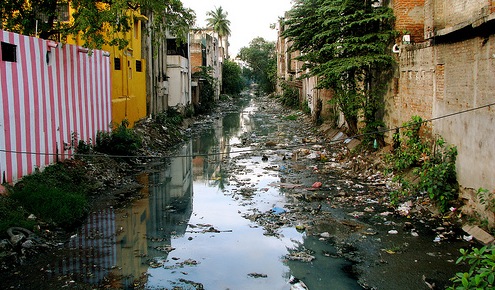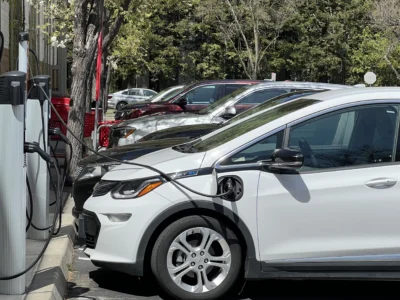Do the Poor Undervalue the Environment?
The Emerging Sub-Field of “Envirodevonomics” Seeks to Find Out

It’s hardly news that environmental quality in the Global South is often disastrous. Even middle income countries such as China and India face enormous pollution problems and destruction of ecosystems. But why? Do people in the Global South not care? Or is something else going on?
A new paper in the Journal of Economic Literature by Michael Greenstone of the University of Chicago and Kelsey Jack of the Brookings Institution develops a conceptual framework for looking at the issues. Here’s the abstract:
Environmental quality in many developing countries is poor and generates substantial health and productivity costs. However, the few existing measures of marginal willingness to pay (MWTP) for environmental quality improvements indicate low valuations by affected households. This paper argues that this seeming paradox is the central puzzle at the intersection of environmental and development economics: Given poor environmental quality and high health burdens in developing countries, why is MWTP seemingly so low? We develop a conceptual framework for understanding this puzzle and propose four potential explanations for why environmental quality is so poor: (1) due to low income levels, individuals value increases in income more than marginal improvements in environmental quality; (2) the marginal costs of environmental quality improvements are high; (3) political economy factors undermine efficient policymaking; and (4) market failures such as weak property rights and missing capital markets distort MWTP for environmental quality. We review the literature on each explanation and discuss how the framework applies to climate change, which is perhaps the most important issue at the intersection of environment and development economics. The paper concludes with a list of promising and unanswered research questions for the emerging sub-field of “envirodevonomics.”
I admit to a certain amount of skepticism that this actually represents an emerging sub-field; it’s just good social research using economic tools. Greenstone is from the University of Chicago, the home of Steven Levitt. I can’t help wondering whether having the inventor of “Freakonomics” makes everyone want to coin a bad portmanteau.
It should also be emphasized that although the paper concedes this in passing, our knowledge of the “existing measures” of MWTP are really primitive. The studies are few and far between; it is difficult to get good data; and I am not convinced that this sort of data really tells us the MWTP. (Greenstone and Jeck deal with this last piece somewhat in the paper, asking whether behavioral economics analysis might reveal a distortion in how we analyze MWTP). But of course that should be part of any decent research program, and one can’t simply refuse to ask conceptual questions because the data isn’t what you would want it to be.
Reader Comments
2 Replies to “Do the Poor Undervalue the Environment?”
Comments are closed.








Unfortunately this kind of work simply perpetuates myths. In the U.S. and in California, it is low income people of color who support most environmental bonds and programs, far more than the affluent. It is really the wealthy who generate the most waste, air and water pollution and GHG emissions. The poor simply inherit the waste stream and the conditions wherein they can only survive. That is, those who can afford to pay for better infrastructure don’t. This kind of work does not really address the fundamental issues of production and consumption and remains enormously superficial.
The premise of this research article is mistaken. There is a large body of research showing that there is no difference in the level of environmental concern across poor and rich countries, or across income levels within those countries. For a review of the data, see Dunlap and Richard York, The Globalization of Environmental Concern, in Steinberg and VanDeveer, eds., Comparative Environmental Politics, MIT Press, 2014.